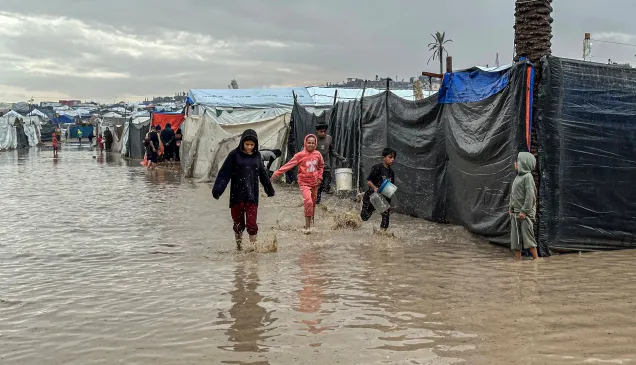“Employers are usually reluctant to hire someone with a disability”, says Sameh, who lost both legs during 2009 war. Despite his background in business administration, Saleh could not find work after his legs were amputated. His education and skills became useful again when he applied for an ICRC microeconomic initiative grant and opened his own stationery shop. Sameh studied the market to ensure his business was successful.
Overcoming disability and unemployment in Gaza
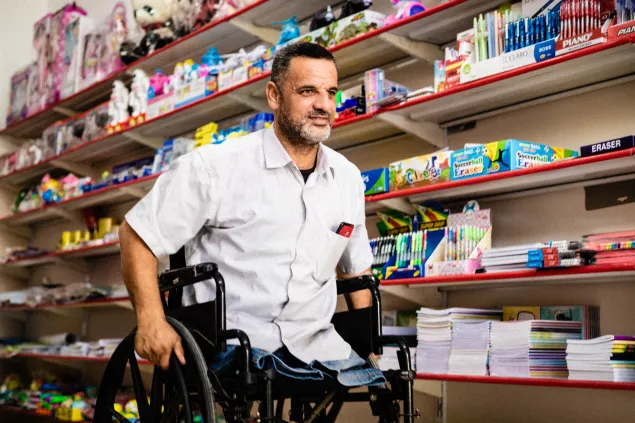
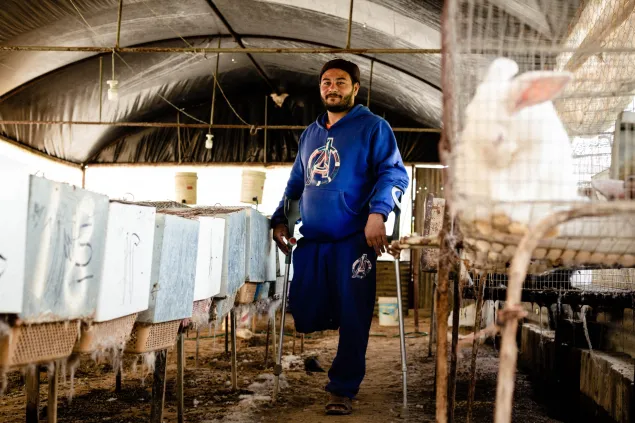
Saleh used to be a construction worker. After he lost his leg, returning to his old job was no longer possible. For several years, Saleh managed to support his family driving a taxi. As unemployment increased, however, many more people became taxi drivers, while the number of clients went down. “My mother used to grow rabbits when I was twelve”, says Saleh. “This gave me the idea to start this business.” “I don’t define myself as a person with disability, Saleh continues, I am a person with ambition. I want to work and achieve things.”
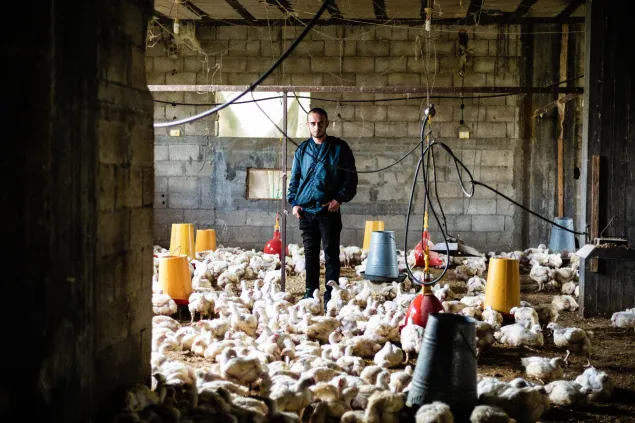
Thaer, who lost his limb during the 2009 war, managed to turn a small hobby into a large business establishing his own chicken farm after he received an ICRC grant.
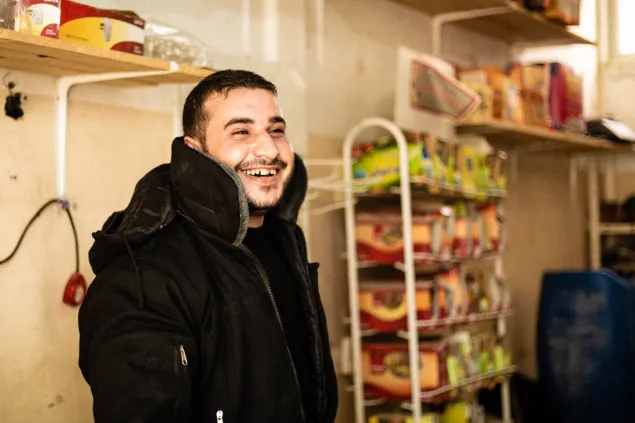
Ahed lost both legs in 2012. He spent two years in rehabilitation and was unable to earn a living for almost three years. His younger sister who studies IT at university came up with an idea to install solar panels and sell internet cards providing WI FI connection in the area. Ahed applied for a microeconomic grant and now sells internet cards to his neighbors.
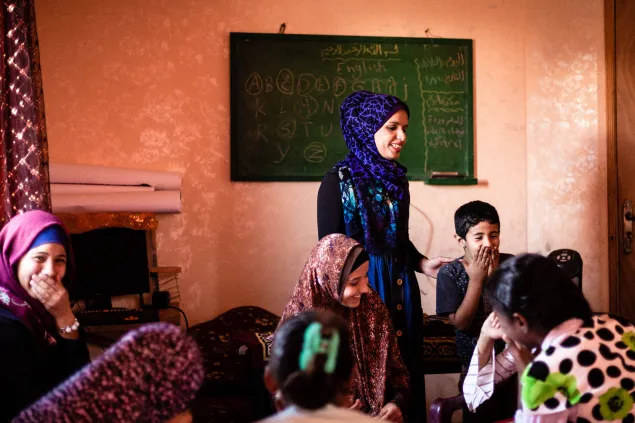
Noor is a teacher. Thanks to the grant, she could realize her dream of running her own school.
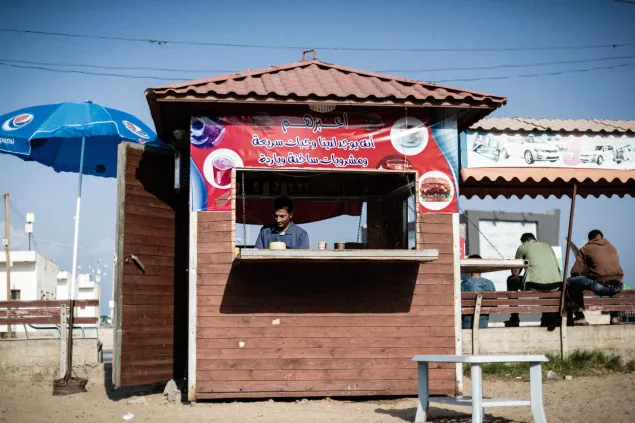
“Running my own business is the best option for me”, says Issam, who used the ICRC grant to open a coffee shop in the port area. “The majority of the jobs available in Gaza are manual and require physical strengths. Being my own boss is the best solution.”
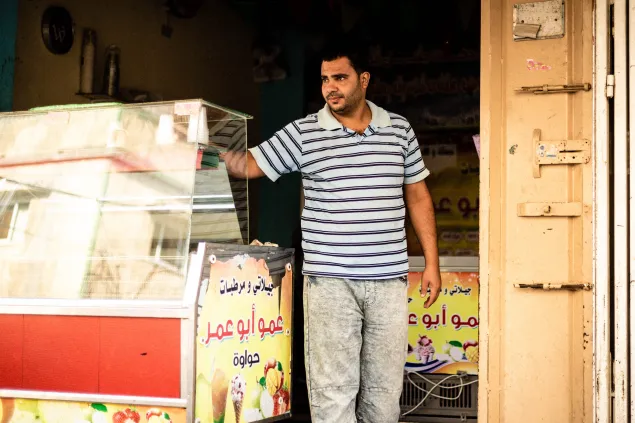
ICRC supports Artificial Limbs and Polio Center in Gaza (ALPC), where people with disabilities receive physical rehabilitation, mobility devices, and psychological support to overcome trauma and regain confidence. Through the ALPC many apply for the ICRC micro economic initiative grants. The grants enable them to provide for themselves and their families, taking control of their future. Since 2016, over 300 people took advantage of ICRC cash grants and its technical support to start new businesses or to reinforce the existing ones.
Paralyzed by severe movement restriction Gaza economy has been steadily deteriorating for the past ten years. As the unemployment rate reached 53%, competition on the job market became fierce and people with disabilities often find themselves in a disadvantage compared to everyone else. Few places in Gaza are wheelchair accessible, while regular power cuts make tall buildings out of reach for those with limited mobility.



